Search
Did you mean: Pandora?
Search Results
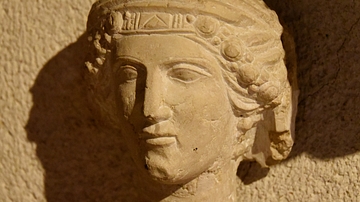
Image
Head of a Woman from Palmyra
This limestone head of an unidentified woman dates to the Roman Period, second to third century CE. From Palmyra, in modern-day Syria. (Museum of Archaeology, Istanbul, Turkey).
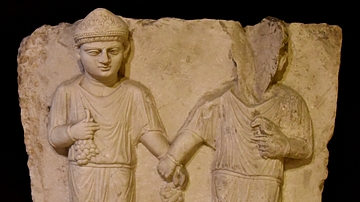
Image
Funerary Stele of Two Boys from Palmyra
The two young boys were represented frontally and are of a similar height. They wear the same type of clothes. The boy on the left side holds a bunch of grapes in each hand. The boy on the right grasps the left wrist of the right boy and...
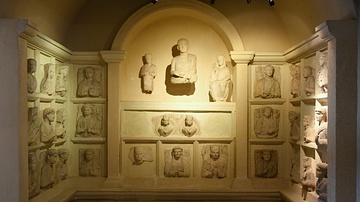
Image
Subterranean Tomb from Palmyra
The hypogea or underground tombs, along with the tower tombs and house tombs, constitute an important part of the monumental burials of the wealthy Palmyrene class in the first and second centuries CE. The underground galleries were, most...
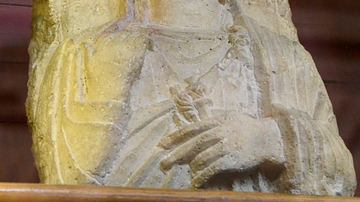
Image
Bust of a Woman from Palmyra
The Aramaic inscription on this limestone bust of a woman reads "Attai daughter of El'a". The woman wears a Greek chiton, From a funerary relief at Palmyra, modern-day Homs Governorate, Syria. Circa 50-150 CE. (The British Museum, London)
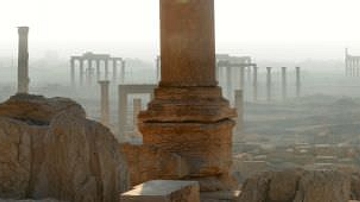
Image
Panorama of Palmyra
A panoramic view of ruins of the ancient desert city of Palmyra in Syria, which grew large in the Syrian desert in the 1st and 2nd centuries AD.
The ruins are now a United Nations World Heritage site.

Image
Queen Zenobia's Last Look Upon Palmyra
Queen Zenobia's Last Look Upon Palmyra, painting by Herbert Gustave Schmalz, 1888.
Art Gallery of South Australia, Adelaide.

Video
Site of Palmyra (UNESCO/NHK)
An oasis in the Syrian desert, north-east of Damascus, Palmyra contains the monumental ruins of a great city that was one of the most important cultural centres of the ancient world. From the 1st to the 2nd century AD, the art and architecture...
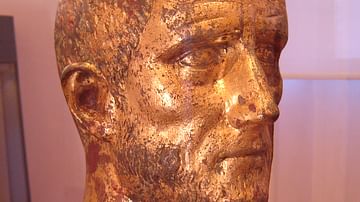
Definition
Aurelian
Aurelian was Roman emperor from 270 to 275 CE. He was one of the so-called Barracks Emperors, chosen by the Roman army during the turbulent period known as the Crisis of the Third Century (235-284 CE). Besides victories against various invading...

Article
Zenobia's Rebellion in the Historia Augusta
The Historia Augusta (Great History) is a Latin work of the 4th century CE that chronicles the lives of Roman emperors from 117-285 CE. Among the many stories related is the history of Zenobia of Palmyra and her challenge to Roman authority...

Definition
Battle of Immae
The Battle of Immae (272 CE) was fought between the forces of the Roman emperor Aurelian (270-275 CE) and those of the Palmyrene Empire of Zenobia (267-273 CE) resulting in a Roman victory and, ultimately, the capture of Zenobia and an end...